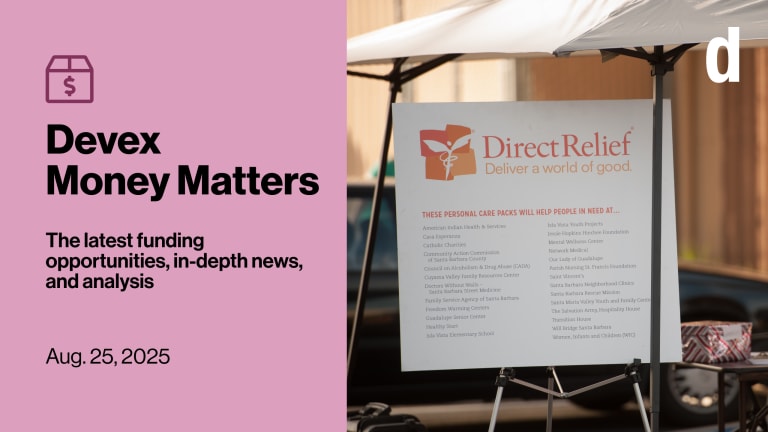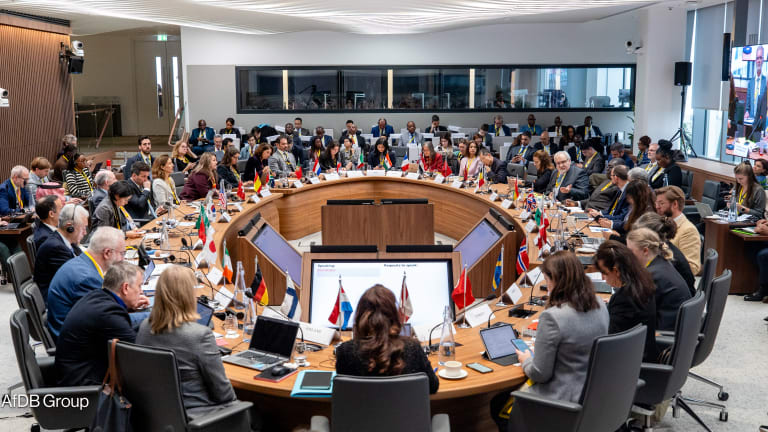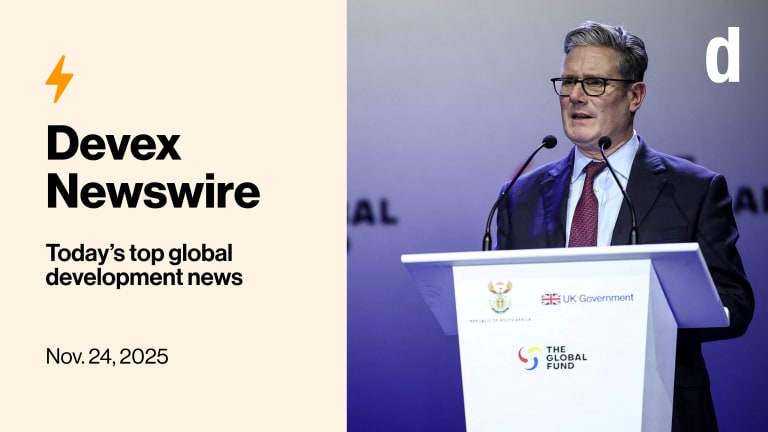
EDITOR’S NOTE: As with the World Bank’s International Development Association, the African Development Fund is up for replenishment this year. Amanda Glassman, director of global health policy and a senior fellow at the Center for Global Development, outlines the challenges facing the African Development Bank in arguing for a substantial U.S. pledge to the AfDF.
When AfDF donors met in Praia, Cape Verde, last fall, African Development Bank President Donald Kaberuka presented them with an ambitious vision for the next replenishment of the fund. Rallying behind Kaberuka, a number of the bank’s advocates in Praia posed a question to donors, “why send your donor money for Africa through Washington, when you can send it directly to AfDF?” — more than a little provocative given that both AfDF and the Washington-based IDA will be seeking ambitious replenishments this year.
In making the case for a bigger AfDF, Kaberuka has hard won credibility with donors, having steered the institution through a far-reaching reform agenda during his seven years in office. Under his leadership, I believe the bank has made significant strides in improving its financial well-being, its development effectiveness, and its overall relevance to the African continent, even as it has dealt with the tumult of political unrest in its permanent headquarters (Cote D’Ivoire) and its temporary headquarters (Tunisia).
I’m not alone in this view. In 2010, CGD’s own Todd Moss noted the bank’s remarkable turnaround even as he pointed to areas for improvement, a view confirmed by the most recent Brookings-CGD Quality of Development Assistance review.
Of course, there are important policy questions that ought to inform how much AfDF donors will pledge, and discussions around these issues (engagement in fragile states, refinement of the bank’s results framework, how AfDF will support regional projects) will play out in the months ahead.
But I think the biggest question facing this replenishment is whether donors will have the ability to meet Kaberuka’s vision and “go big,” even if they want to. It will be worth watching the largest donors in this regard: the United Kingdom, the United States, Germany, France, Canada, Japan, the Netherlands, and Norway, because where they come out as a group will determine whether AfDF grows or shrinks in 2014.
What will it take to see a larger replenishment this time around? With fewer internal resources available (largely determined by “reflows,” or payments made by AfDF borrowers on existing loans), donors will need to drive any growth in the overall size of the fund.
And the numbers are striking. For AfDF to simply see very modest nominal growth overall, say 10 percent, the estimates I’ve seen suggest that donor contributions will need to increase by 50 percent. Contrast this with the last replenishment in 2010, when donor funding only grew by 10 percent.
At the time, the United States was an important source of growth, with a 24 percent increase in its commitment. But with declining contributions from Germany and France, and an unfavorable exchange rate limiting the impact of the United Kingdom’s very large increase (in the AfDB’s unit of account, the United Kingdom’s 36 percent pound increase translated into a modest 5 percent increase), the outcome fell well short of the bank’s ambition and the stated ambition of the donors.
This time around, I don’t know if there’s reason for hope when it comes to most of the large donors, but I do worry in particular about the constraints faced by the United States based on my experience as the U.S. representative in the 2010 replenishment.
To put it simply, it is extraordinarily difficult to increase a line item in the federal budget by double-digit percentages, even when the absolute dollar amounts (an annual increase of $50 million in the case of the AfDF) don’t even register as a rounding error in the $50 billion foreign assistance budget, let alone the federal budget as a whole.
One clear problem is that commitments to the AfDF and other multilaterals are line items within a relatively fixed (and tiny) portion of the foreign assistance accounts, with a pretty strict firewall between them and the remaining 95 percent of U.S. foreign assistance. As a result, the U.S. Treasury is typically faced with robbing Peter (IDA, Asian Development Fund, Global Environment Facility? Take your pick!) to pay Paul (AfDF).
Wouldn’t it make more sense to see greater flexibility and a broader array of trade-offs in play among our foreign assistance programs when we make decisions about our multilateral commitments? I certainly think so. But easier said than done.
I’ll be spending my time in the months ahead looking at ways in which the United States can be better positioned to be bold when it wants to be on the multilateral stage, even within a very constrained overall budget environment. This is of a piece with a more general effort that I would like to see to improve the way in which the executive branch engages with Congress and within its own agencies to support multilateral institutions.
As for AfDF’s replenishment, my hope is that U.S. officials do find a way to consider a broader array of trade-offs in the foreign assistance budget this year. And if they find themselves asking, “how are we going to pay for a bigger AfDF?,” I think this chart, based on CGD work that applies the U.K. multilateral aid review to the U.S. context, could help point them to some answers:

Edited for style and republished with permission from the Center for Global Development. Read the original article.








